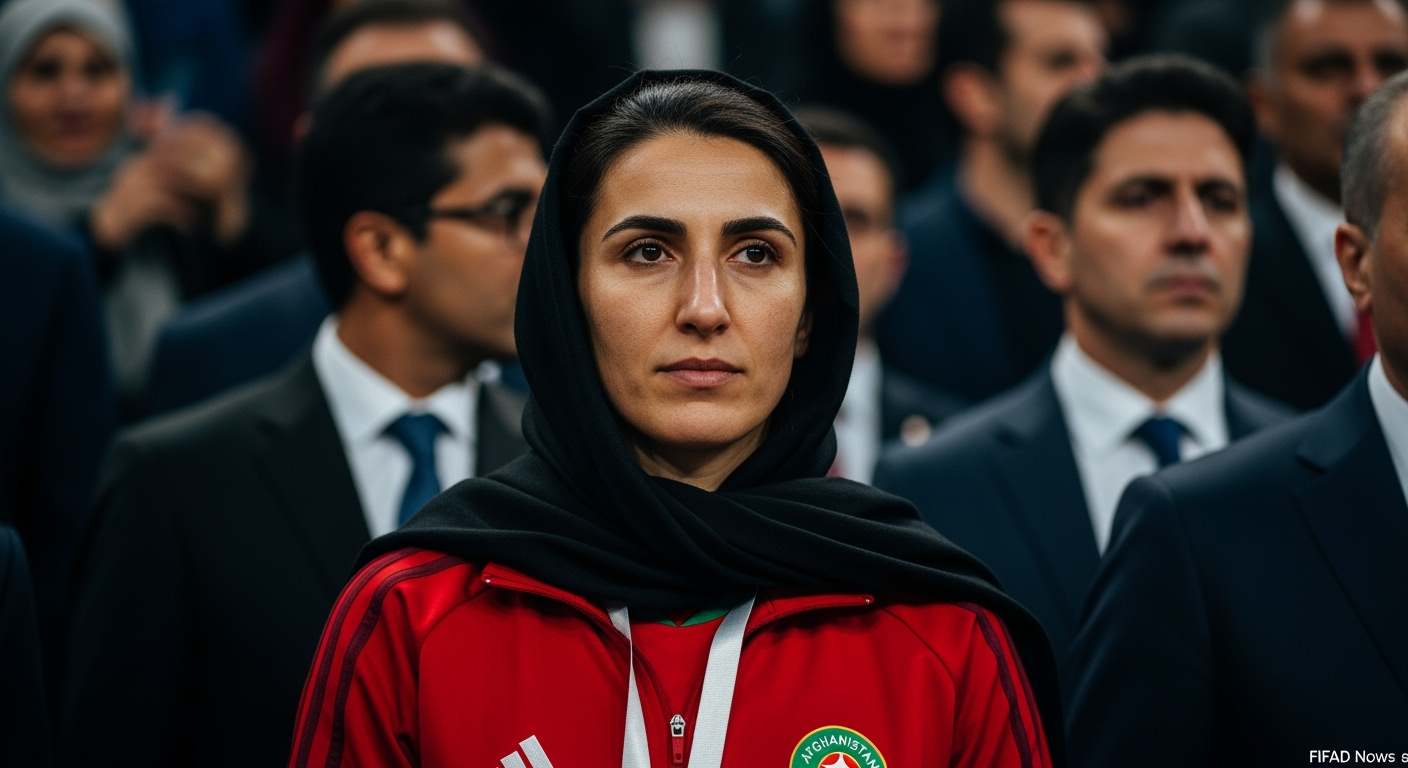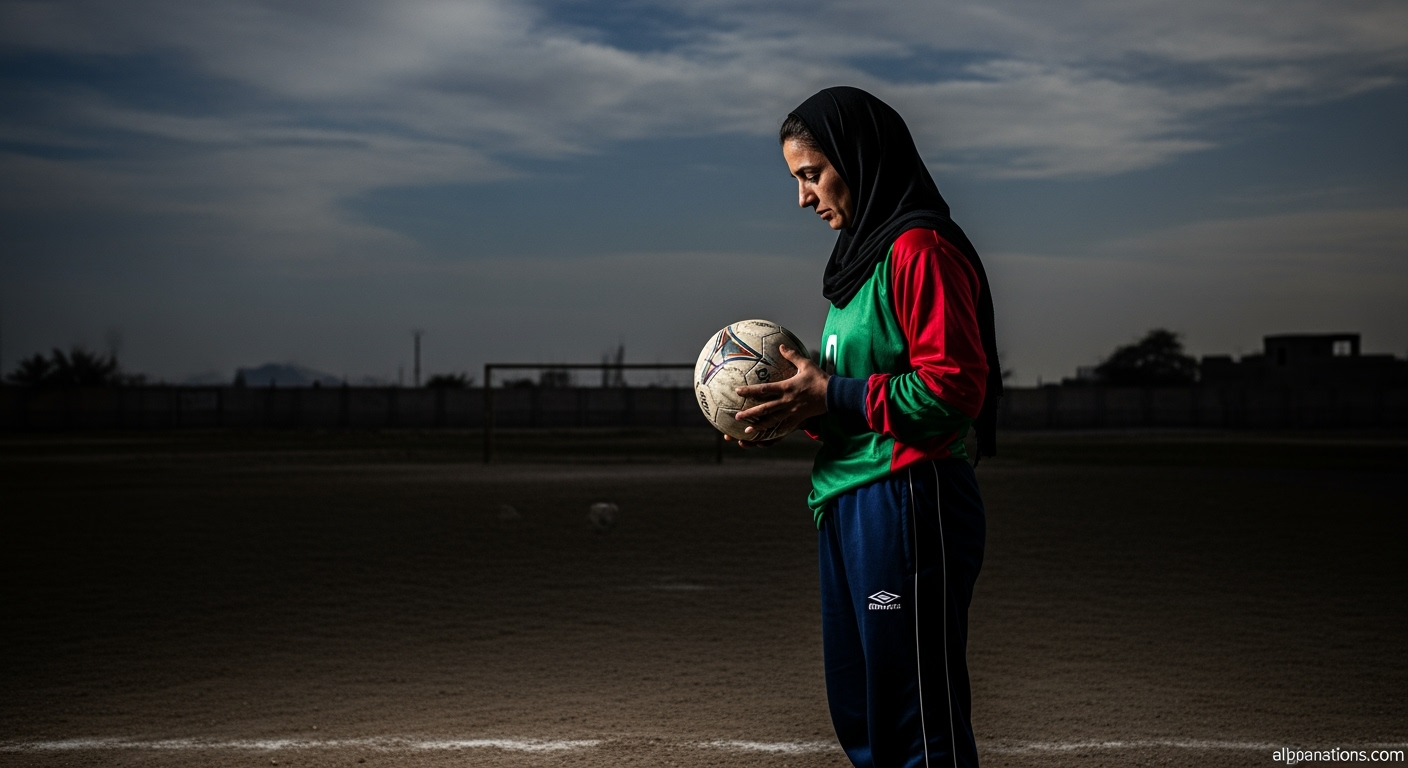Related Articles

The Silent Tear: Unpacking the Impact of Cruciate Ligament Ruptures




The dreams of Afghan women footballers, once a beacon of progress and empowerment, remain suspended in a precarious limbo, nearly four years after the Taliban's resurgence plunged their aspirations into uncertainty. Exiled from their homeland and barred from playing by the current regime, these athletes now confront a new hurdle: gaining full recognition from FIFA, the global governing body of football, to compete on the international stage. Their ongoing struggle highlights a critical intersection of human rights, gender equality, and sports governance, challenging FIFA's commitment to its own statutes against discrimination and raising questions about the future of women's sports in oppressive environments.
Following the Taliban's takeover of Afghanistan in August 2021, the progress made in women's rights over two decades was systematically dismantled. Among the sweeping restrictions imposed, the ban on women and girls participating in sports was immediate and absolute. Athletes, once celebrated figures, became targets, prompting many to flee for their lives. The senior women's national team found asylum in Australia, while junior teams and other female athletes sought refuge in countries like Portugal, the United Kingdom, and the United States. Former team captain Khalida Popal, already in exile in Denmark, urged players to delete social media accounts, erase public identities, and destroy their kits for safety.
The Taliban's prohibition stems from a conservative interpretation of Islam, intertwined with adherence to traditional gender norms and patriarchal power relations, which views women's sports as a threat to their ideology. This ban is part of a broader system of gender discrimination, affecting education, employment, and freedom of movement for women and girls across the country. United Nations experts have condemned these actions, stating that the ban on women's sports is an unacceptable abrogation of rights that may amount to crimes against humanity.
While FIFA played a role in the evacuation of over 150 athletes and their families from Afghanistan in 2021, its subsequent actions regarding the exiled women's national team have drawn criticism for their perceived slowness and a failure to grant full official recognition. FIFA regulations stipulate that a national team must be recognized by its member association—in this case, the Afghanistan Football Federation (AFF). However, the AFF is now under Taliban control and, consistent with the regime's policies, refuses to recognize any women's teams. This regulatory framework has effectively sidelined the Afghan women's national team from international competition, leading them to miss qualification cycles for major tournaments such as the 2026 AFC Women's Asian Cup and the 2027 Women's World Cup.
In a significant development in May 2025, FIFA sanctioned the creation of an Afghan Women's Refugee Team (AWRT) as a one-year pilot project. This initiative allows selected Afghan players to participate in international friendlies and receive tailored support, including equipment, counseling, and educational pathways. FIFA President Gianni Infantino hailed the decision as a "historic milestone," affirming FIFA's commitment to ensuring opportunities for girls in football worldwide. However, players and human rights organizations, while acknowledging it as a positive step, view this as a partial solution rather than official recognition. The matches played by the AWRT will not count toward official rankings, and the team is still unable to compete in official tournaments. Khalida Popal, founder of the Afghanistan Women's National Team, expressed gratitude but hopes FIFA will amend its statutes to provide official recognition for the players as the Afghanistan Women's National Team.
A coalition of human rights and sports organizations, including the Sport & Rights Alliance, Amnesty International, and Human Rights Watch, has intensified calls for FIFA to intervene more decisively. They argue that denying the exiled team the right to play internationally constitutes discrimination and violates FIFA's own statutes and Human Rights Policy, which prohibit gender discrimination and mandate the promotion of women's football. These groups have urged FIFA to provide financial support for training and competition, similar to what other member associations receive.
A crucial precedent exists with the International Olympic Committee (IOC), which recognized an Afghan Olympic Committee in exile for the 2024 Paris Olympics. This decision enabled Afghan women athletes to compete under the Olympic flag, despite the Taliban's restrictions, demonstrating that international sporting bodies can find ways to circumvent national political hurdles to protect athletes' rights. UN experts have called on FIFA and other international sports bodies to follow the IOC's example and challenge the Taliban's oppressive policies.
For the players, football is more than just a game; it is an act of resistance and a connection to their national identity. Mursal Sadat, a former center back for the national team now in exile, recounted the emotional experience of visiting a Women's World Cup locker room, feeling that "everything was stolen from us". Fatima Yousufi, former captain of the national team, emphasized that recognition is crucial, especially as the Taliban has stripped Afghan women of their rights and freedoms. These athletes continue to train and strive for a return to competitive play, determined to represent the voice of voiceless women and girls in Afghanistan.
The situation carries broader implications for the integrity of international sports and the role of global federations in upholding human rights. The continued exclusion of the Afghan women's team sends a chilling message about the vulnerability of women's sports in regions affected by conflict and oppressive regimes. Advocacy groups argue that FIFA's recognition would send a powerful message that Afghan women's rights cannot be erased and that international sports bodies have a responsibility to actively support athletes facing discrimination.
As the Afghan Women's Refugee Team takes its first tentative steps, the path to full recognition and participation in top-tier international competitions remains uncertain. While FIFA has expressed its commitment to supporting Afghan women's football opportunities, the fundamental issue of official national team recognition, free from the dictates of the Taliban-controlled AFF, persists. The global football community, human rights advocates, and the athletes themselves continue to press FIFA to align its actions with its stated values, ensuring that the dreams of these resilient women are not permanently sidelined. The ongoing dialogue underscores the profound responsibility international sports organizations bear in advocating for and protecting the rights of athletes, particularly when they face grave threats to their freedom and dignity.